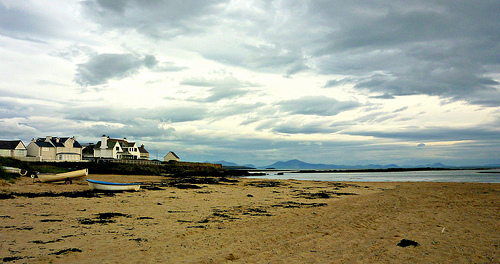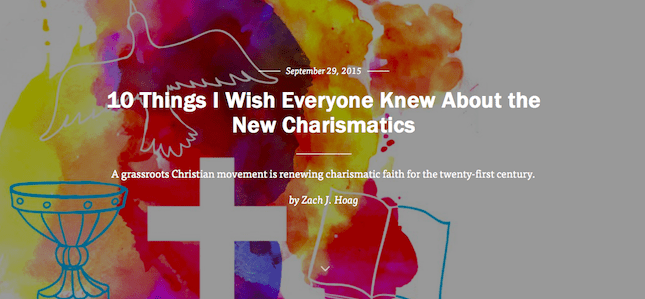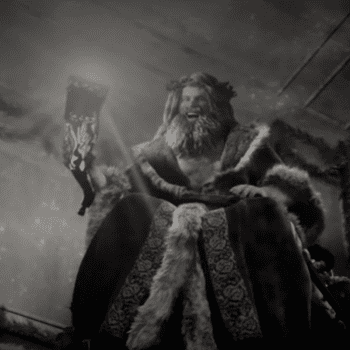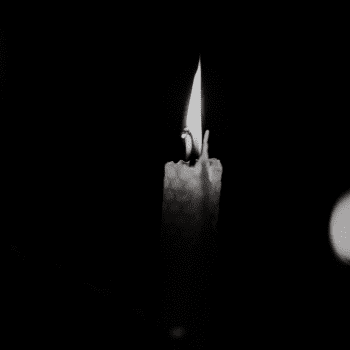Do you have any idea what’s at stake in you understanding who you really are?
When I was 12, my family moved from East Texas to Long Island, NY.
What follows here is technically a book review – but really it’s more of a riff. Because Jonathan Martin’s first book, Prototype, has affected me in ways that few books have. There are meaningful, beautiful, wonderful books – and then there are meaningful, beautiful, wonderful books that arrive at such a time in one’s life so as to capture a kairos moment, a definitive turning point upon which one’s very future depends. You can’t just review those kinds of books. You must riff on them, exult in them, and tell heart-wrenching, Jesus-glorifying stories.
Emotional abuse is a sticky wicket precisely because it is not physical in nature. That is not to say that it is “better” or “worse” than physical abuse – if such categories could even be applied to something so terrible – but more difficult to pinpoint and name. It happens to you, to be sure; but it only does its damage in you. When I was 12, the emotional abuse had begun, but it had not yet accelerated to a noticeable speed. 12 was, in a way, a final year of freedom, before the damage increased and spread.
We had moved from Miami, FL, where I was born, to Marshall, TX, so that my parents could be a part of a little-known church with a very charismatic leader who considered himself a pivotal prophet in the “last days” Restoration/Manifest Sons of God movement. He was very disturbed, and it was, by all accounts, a cult. And the time there, as I remember it, was tumultuous. The move to Long Island was something of an escape, with my father planning to start a church with a few other escapees who had previously moved to Texas from New York. (My father is good at escaping, and not always for good reasons.)
We moved all the way out to the East End of the Island, on the North Fork. Out there, it’s not Hamptons, it’s wine country. It’s Summerland. It’s glorious.
And somehow, we ended up renting a house just a block away from a virtually private bay.
Jonathan Martin begins his book with an illustration that is instantly recognizable to readers as “the boy on the bike.” It comes to define the entire message of the book itself: that each of us must realize our fundamental identity as the beloved of God and so become the fully human beings we are meant to become. The story is set against the backdrop of growing up in a Pentecostal atmosphere of “last days” fear:
The one escape I had from these apocalyptic fantasies was my blue-and-silver Schwinn bike. During those same years, I used to ride my bike for countless hours on the cul-de-sac at the end of the street. Instead of dwelling on the darker visions of the end of the world, I escaped into the realm of the truly fantastic – riding in circles for hours and making up stories I would tell myself out loud. During these rides, I was unencumbered by fear, doubt, or self-consciousness, freely pursuing all the possibilities – and impossibilities – of life, without ever having to leave the neighborhood (pp. 8-9).
Jonathan goes on to describe how, as an adult, a friend received a word about this during a time of prayer. “I believe God is saying that is exactly who he wants you to become again,” the friend said to Jonathan. “He wants you to be the boy on the bike again. He wants you to dream and laugh and create and be with Him the way you were when you rode in circles.” Jonathan had never told anyone about those bike rides. He wept at the word.
Of course, like many readers, my own “boy on a bike” experience was instantly triggered. My mind went racing back to the bay, during that last year of freedom. Having escaped Texas, there was a sense of hope, of a new day. There were new friends, at first. And there was this bay where, everyday during that first summer, I would go swimming. Usually by myself, sometimes with parents and brother on the beach, I would venture out and stay in the water for hours. I would go under, and come up, over and over again. Fantasies of comic book heroes I had dreamt up and drawn the night before filled my mind. I acted out fight scenes in the underwater weightlessness. I could hold my breath a long time. One of the new families we met there had a daughter just my age. I thought about her too.
For as long as I could remember, my father had scolded me for daydreaming. In the back seat of the car, I would recklessly imagine, staring out the window. As an introvert, I lived so much inside my head. There were wonderful things there. I felt accepted there. “Hey! What are you doing? Press in,” he would snap. That was the beginning. In the water, though, when I was way out, he didn’t care to chastise me.
There, I was myself. There, I felt close to God, without even thinking about him. There, I was free.
As my parents’ own ministry imploded, hope began to disappear, along with friends. Adolescence commenced. A cycle of aggression and avoidance from my abuser toward me was set in motion and intensified. I was utterly submissive and never rebelled, but as I attempted to grow into myself as a deeply reflective and introspective person – a thinker, a writer, an analyzer, an intellect, and a sincere follower of Jesus – I was perceived as a threat. He constantly and systematically lashed out in anger at me for no reason, avoided me for days and weeks on end, only to come back with apologies, kindnesses, and rewards after. Then, repeat. I was sure that I was undesirable, unacceptable, and unloved, with no future. To ensure the latter, he intentionally withheld all academic and social opportunity from me, all in the name of his unwavering spiritual convictions. We moved twice more, each time out of state (escape). I was homeschooled off the grid. College was forbidden. I was controlled, isolated, and suppressed. I became chronically depressed. This continued until I left home and continued on afterward, as I remained submitted to him as a father and mentor. It harmed my marriage. Just last year, it finally resulted in the derailment of my own church plant which my abuser had become deeply involved in, finally leading a quiet mutiny against me.
Then, escape, again.
Emotional abuse is a sticky wicket, especially when you have never named it and you are a 33 year old married adult with small children of your own. To experience the loss of everything at the hands of your abuser is equal parts devastating and humiliating. And yet, it is only in the midst of the loss of everything that I have been able to see and name the truth.
Enter: Prototype.
We all want to avoid suffering at all costs. We assume that whatever has wounded us, whatever has scarred us, is now an obstacle to all that we are supposed to become. And yet, that’s the beauty, or genius, of Jesus’ whole new way of being human – in Him, our scars are no longer a source of shame. In fact (and this is perhaps the most revolutionary part), our scars, in a sense authenticate us…
This is part of what it means to follow Jesus in becoming people from the future: We become the kind of people who no longer have to hide their scars. Our scars reveal who we are. The fact that we have experienced profound suffering in life – the fact that we carry what seem to be unsightly scars – do not disqualify us from following Jesus. It may be precisely what qualifies us (pp. 88-89).
Whoa.
It is thrilling enough, in light of the abuse, to read that the words spoken over Jesus, “You are my Son, the Beloved; with you I am well pleased,” belong to me, to the degree that it is not my perfection that brings God such delight, but my very existence (p.43). But it is life-saving to read that this scar, this wound that has destroyed so much, is not the end of my journey as a follower of Jesus, or a leader in the Body. It is, really, the beginning. Further, in the most difficult year of my life, a year in which all hope seemed lost after a failed church plant that we gave our entire lives to, a year in which my wife and I were plunged into a dark wilderness, these words are beams of light:
God draws people into obscurity – into the wilderness – not because He’s angry with them or because they aren’t “successful enough,” but because He wants to go deeper in His relationship with them. Far from being punishment, judgment, or curse, the wilderness is a gift. It’s where we can experience the primal delight of being fully known and delighted in by God (p. 80).
Can it be true? Yes, it can. And it is.
I’m not sure how to end this except with a couple more quotes. How about this one:
I believe you, too, have a story to tell: a story of your belovedness. It’s a story of how your scars and wounds and death fit into the story of the death of Jesus, of how your victories fit into the victory of God’s love over the power of death. I believe that you, too, are called to “follow the Lamb wherever he goes” (Revelation 14:4), telling your story, allowing His wounds to heal your own, clinging not to your own life even in the face of death.
Your story is not just your own. It is part of something bigger. It is part of a story of how God wants to establish “the new New York, the new Atlanta, the new Philadelphia, the new Los Angeles, the new Memphis, Tennessee.” This is what we have to do. Like Martin Luther King’s “beloved community,” we’ve got to get in with a group of people who are willing to astonish this present world, in its loneliness and disconnection, with the peace and joy that comes from the future. We’ve got to be a part of a community that will show the world through our love one for another the beautiful things God has in store for His creation (p. 204).
The last year has been a dark wilderness indeed, and yet here I am, experiencing the primal love and acceptance of God in the midst of my woundedness like never before. If the wilderness is a place of truth, a desert of the Real, then this is where the story comes together. And this is the beginning of an entirely new season, something bigger, where that story will unfold and enfold others in its power, maybe even establishing the new Burlington, Vermont. Perhaps this very thing is true for you, too – a brand new beginning after your wilderness season. For God’s and the world’s sake, let it be so.
Ah, here’s a way to end this wild riff. I’m going to re-word an excerpt from the very beginning of chapter 2, on page 21, adding a personal voice. If you have a moment, personalize it to your own experience:
I was created to be the boy in the bay. Because I am formed in the image of God, I was born with the capacity to dream, to imagine, to play, to create. The bay is important, you see, but it’s only a prop. When I was in the bay, my mind and heart were opened up to see things beyond the boundaries of reality as I knew it. Those were moments when my soul was opened up wide enough to imagine a different world from the one I’d been given. And my creativity was boundless for envisioning such a world because those were moments when I did not feel fear.
Onward, without fear, full of hope – like the boy in the bay.













